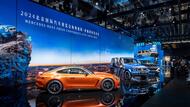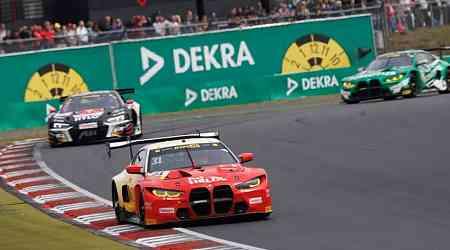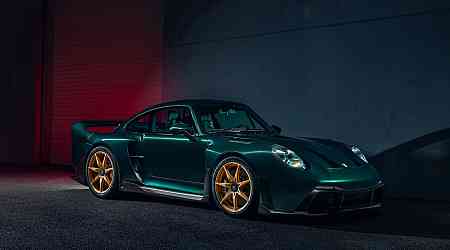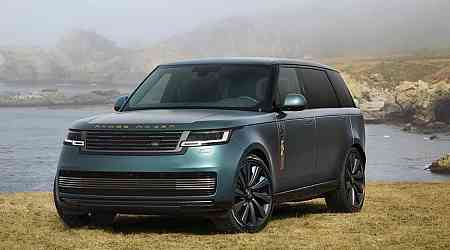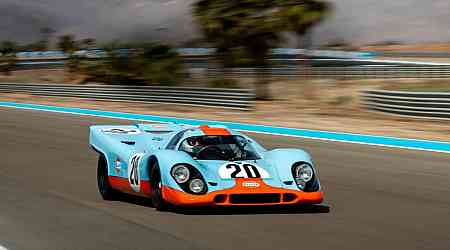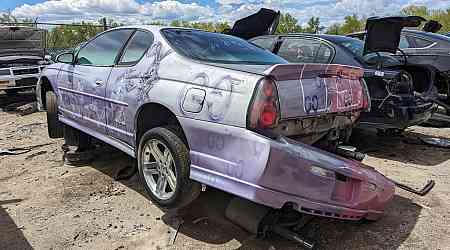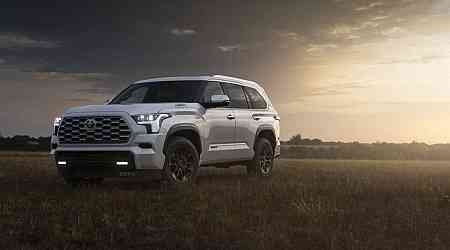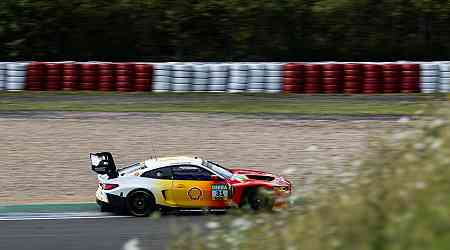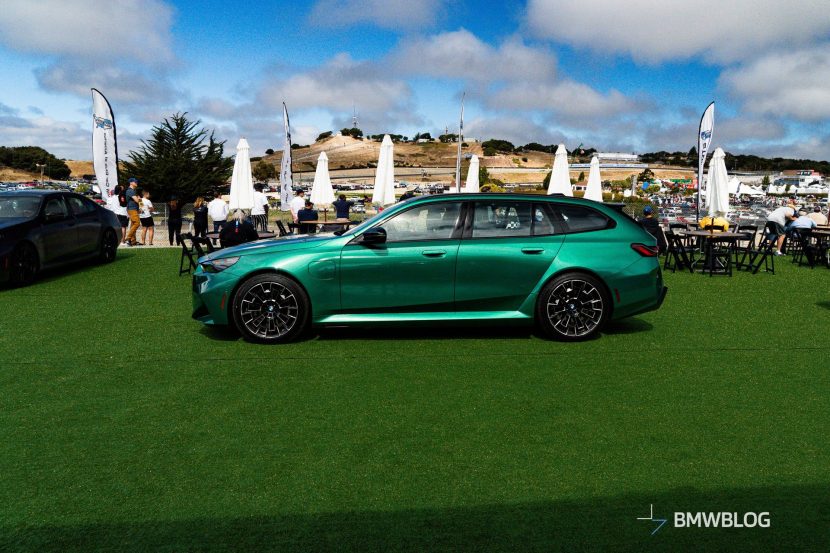The sharp decline in fortunes hitting global volume car brands in China is starting to be repeated among premium brands, including Audi, BMW, Jaguar, Land Rover, Mercedes-Benz and Porsche.
Premiums brands typically derive a much greater share of their overall sales from the world’s largest market than than volume players do – more than a third of them in the case of Audi.
Until recently, they were relatively insulated from the brutal price war being waged by ever-improving Chinese brands fighting to capture market share. Brand power was the protective insulating material.
However, their sales are skidding downward this year, sending a shiver through boardrooms as executives work out whether this is a blip attributable to the overall lower consumer confidence in China or the start of a longer downward trend.
In early August, Volkswagen Group and Porsche CEO Oliver Blume spoke of a “very weak China luxury market” after the German firm's sales dropped 33% there during the first half of the year, dropping China from its top market to its third, behind Europe and North America.
Porsche blamed the “ongoing tense economic situation in the Chinese market and the focus on value-based sales” (ie discounting and price-cutting) in its financial report on the drop.
The Volkswagen Group as a whole, including Audi, saw its profits in China drop 30% to €800 million in the first half as sales fell 7.3%.
Audi’s sales weren’t as badly hit, with sales down just 2% in the first half, but its China profits were down 26%, indicating the German brand was either selling fewer high-profit models or having to discount to keep sales buoyant.
JLR was another hit by a softening of demand, with first half sales down 7.3%. That meant China is no longer the British firm's biggest market globally, replaced by the US.
“We are paying close attention to China,” CFO Richard Molyneux told analysts on its second-quarter earnings call. “There are certainly signals that demand is not at the level that we would like to see it going forward.”
BMW meanwhile saw its sales in China fall 4.3% in the first half, despite the market overall actually growing by 3.4% in the same period.
Mercedes was worse hit, with sales down 9%. The blame was partly due to “fierce competition in entry [the GLA etc] and to a certain extent also in core [GLC etc]”, CFO Harold Wilhelm told analysts on its second-quarter earnings call. “The market situation in the premium and luxury segment in China remained weak.”
Premium brands are fairly certain the problem mostly lies with Chinese consumers being less willing to spend amid wider economic issues, including a collapse in property values.
“One piece of it, I am sure, is related to the real estate sector,” Mercedes CEO Ola Källenius said. “The savings for upper-middle-class people has been that additional buy-to-let apartment that was just going up and up and up. If you feel flushed, you will buy a car. If you don't, you don't.”
The slump in demand is being repeated across luxury sectors.
“We can see that there is less appetite for buying luxury goods and people are saving money more than spending money in China,” said Axel Dumas, chairman of French luxury goods company Hermès, on its second-quarter earnings call.
The Chinese government has been taking steps to restore confidence in the economy with the hope of seeing consumer demand return. But even so, Mercedes isn't expecting a serious gearshift in demand again for 12-18 months.
“The cautious view that we take now is that's not going to change quickly,” Källenius said.
The first step the premium brands have taken in China amid this downturn is to shore up pricing. Discounting might keep the factories humming, the Chinese joint venture happy, the dealers busy, the market share stable and the cash flowing in, but it erodes profits, disappoints shareholders and in the long-term upsets customers used to high residual values.
BMW CFO Walter Mertl said the company had reduced dealer support activity (likely a mix of manufacturer discounts and volume bonuses) in the second quarter.
“We are aware that pricing pressure is all around in China," he said." And of course, a lot of dealer groups had certain pressures. But we had discussion with them saying 'okay, we've reduced these extra volume targets from you in order to stabilise transaction prices'.”
Mercedes is another working to keep pricing levels high, but it warned that there were limits. “You cannot completely insulate yourself from the market and say ‘I'm operating in my own universe and it doesn't matter at all what the others do’,” Källenius said.
China has been a gold mine for premium brands, thanks to their ability to charge high prices, and the situation remains that way at the top end.
JLR said at its investor day in June that its average sales price in China was the equivalent to £87,000, compared with a global average of just above £70,000. That was despite JLR still competing in the lower price categories with its China-made Range Rover Evoque, Discovery Sport and Jaguar saloons.
Those cheaper models are dragging down JLR’s pricing power in the country – averaging the equivalent of £36,000, JLR said last year - and are destined for the chop.
“It's certainly more and more difficult at the lower price points in China at the moment,” Molyneux said on the company’s earnings call.
In the cheaper segments, premium brands are also having to fight to be competitive with electric cars. In the first half of 2024, more than 50% of all car sales in China were either electric or plug-in hybrid, with the push coming lower down the price range. In the more rarified strata, though, the pressure is lessened.
“Chinese customers for [the] Range Rover and [Land Rover] Defender are still very much ICE customers,” Molyneux told analysts.
JLR’s solution is to licence the Freelander name to its joint-venture partner Chery to build an EV and REx model family – crucially based on Chery’s platform – in their shared Changshu plant. That way, it can concentrate on the top-end models.
Importing fewer numbers of high-value models is also the tactic that China strugglers General Motors and Ford are wanting to employ as they look how to rescue something from a market that's turning away from their volume models.
GM lost money in China for the second quarter in a row. As the American company looks to stablise its volume brands (such as Buick) in the country, it's also eyeing up the import route.
“We have the premium channel, where we believe we have an opportunity to export with very low capital investment, to take some of our most iconic products and export them into the market at the top end,” GM CEO Mary Barra said on its second-quarter earnings call.
She wasn’t specific, but compatriot Ford has done something similar. At the Beijing motor show in April, it displayed nothing except what it calls its “passion vehicles”, including the Bronco and Ranger Raptor.
The Germans, JLR and Japan's Lexus rely heavily on imports of their most profitable high-end models into China, but those building in the EU fear that route is in danger of being targeted by retaliatory tariffs.
The Chinese authorities have protested strongly against the EU’s imposition of extra tariffs on Chinese-built EVs (as have the German car makers) and could hit back by raising China's own tariffs even higher than they already are.
Whether cars are imported or built in China, the premium brands know they have to take on the bolder Chinese companies, which are increasingly eyeing up the profitable premium segments. That means moving faster to integrate the latest technology, including tapping up China's newfound knowhow.
For example, Audi has linked up with Volkswagen Group joint-venture partner SAIC to jointly develop a new platform, taking their relationship to a newer level than just manufacturing. The resultant new EVs (which reportedly might not carry the four-ring logo) are said to use technology from SAIC’s IM brand.
The partnership would solve both Audi’s lagging tech expertise and SAIC’s lack of brand recognition in the premium segment.
Mercedes has committed itself to a complete technology overhaul in China. “That's a race you got to be in. No compromise, full force,” Källenius said. “Even if maybe not every single conservative Mercedes customer needs it. Don't forget how young the average Mercedes customer is in China.”
High-end sports car manufacturers are also being hit. For example, McLaren’s sales in China fell 82% in the first quarter this year, partly exacerbated by the fact that it sells only the Artura there.
“The situation in China in general is very, very difficult,” CEO Michael Leiters told Autocar in July. “But I strongly believe in China and we will invest in that market.”
Chinese consumers have traditionally bought far fewer sports cars, meaning the drop in luxury demand is less of an issue for the likes of McLaren. China accounted for just 6% of Lamborghini sales in the first half of 2024, for instance, compared to just under 25% for Bentley.
The global nature of premium brands means they’ve traditionally been insulated from regional shocks. For example, JLR was able to shrug off its China downturn with a 31% jump in sales in North America. However, China accounts for more than a quarter of global car market in volume and far more than that in terms of potential revenue for the premiums, meaning they and all luxury goods brands will be working feverishly to ensure they don’t suffer the same collapse being experienced by many volume car makers in the country.


















